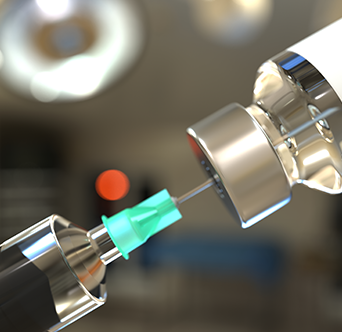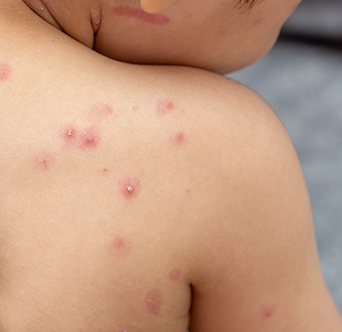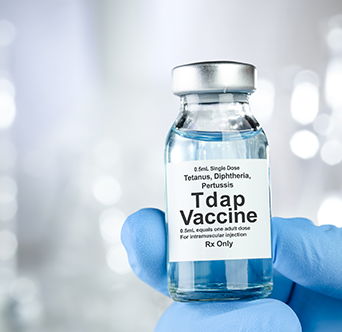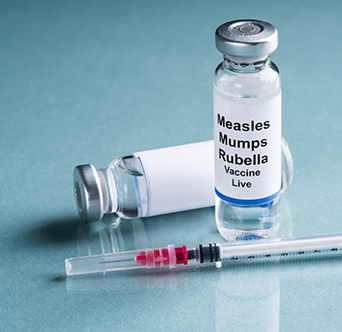What is Vaccination
Vaccination is a simple, safe, and effective way of protecting people against harmful diseases, before they come into contact with them. It uses your body’s natural defenses to build resistance to specific infections and makes your immune system stronger. Vaccines train your immune system to create antibodies, just as it does when it’s exposed to a disease. However, because vaccines contain only killed or weakened forms of germs like viruses or bacteria, they do not cause the disease or put you at risk of its complications. Most vaccines are given by an injection, but some are given orally (by mouth) or sprayed into the nose.
- World Health Organization, Vaccines and immunization, 22 February 2021

Human Papillomavirus (HPV)
Vaccination
Cervical cancer is the term used for cancer of the part of our uterus (or womb) which connects to the innermost part of our vagina. A strong link has been established between cervical cancer and infection with certain strains of the Human Papillomavirus. Two vaccines, Gardasil and Cervarix are available for use in females from 9 to 25 years of age and is given in three doses over a 6-moth period. It also offers protection for cancers of the throat, anus and penis.

Hepatitis A Vaccination
Hepatitis A is a viral infection of the liver and spreads by eating contaminated food or water, or through close contact with individuals infected with the virus. Thankfully, a vaccination that can prevent this is available. The vaccination consists of two doses which are given six months apart.

Hepatitis B Vaccination
Hepatitis B is a serious infection of the liver that can lead to liver damage and even liver cancer. It spreads through contact with the blood or body fluids of an infected person. You should first test to see if you have previously been infected. The vaccination consists of two doses which are given six months apart.
Type of Vaccines
Other Vaccines

Pneumococcal
Pneumococcal infection is a bacterial infection that is spread by coughing, sneezing and contact with nasal fluids. Signs of infection include high fever, cough, and shortness of breath. If the brain is infected, there may be headaches and confusion. Pneumococcal vaccination is recommended for all persons with chronic illnesses such as asthma, diabetes, heart and pulmonary diseases and for elderly people above 65 years of age. Pneumococcal vaccines are vaccines against the bacterium Streptococcus pneumoniae. Their use can prevent some cases of pneumonia, meningitis, and sepsis.
Other Vaccines

Varicella / Shingles
Chickenpox (varicella) is a viral infection caused by the varicella-zoster virus. Shingles (herpes zoster infection) is caused by re-activation of the chicken-pox.
Zostavax is an FDA licensed vaccine that helps to reduce the risk of getting herpes zoster (shingles) in individuals 50 years of age and older.
Other Vaccines

Chicken Pox
Chickenpox (varicella) is a viral infection caused by the varicella-zoster virus. Shingles (herpes zoster infection) is caused by re-activation of the chicken-pox.
Zostavax is an FDA licensed vaccine that helps to reduce the risk of getting herpes zoster (shingles) in individuals 50 years of age and older.
Other Vaccines

Diphtheria, Tetanus, Pertussis - Boostrix
Tdap is a combination vaccine that protects against three potentially life-threatening bacterial diseases: tetanus, diphtheria, and pertussis (whooping cough). Td is a booster vaccine for tetanus and diphtheria.
This vaccine prevents tetanus, diphtheria and whooping cough. All adults who have not previously had a dose should get this vaccination. Booster shots are administered once every 10 years.
Other Vaccines

Measles, Mumps & Rubella - Priorix
Measles causes fever, rash, cough, runny nose, and red, watery eyes Mumps causes fever, headache, muscle aches, tiredness, loss of appetite, and swollen salivary glands Rubella, causes fever, sore throat, rash, headache, and red, itchy eyes.
Other Vaccines

Meningitis - Trumenba
Meningitis – Trumenba Quantity 1 Contact Us to Purchase Instruction Vaccines can only be prescribed and administered after a detailed consultation with a Doctor. Medical history, pre-existing health conditions and other factors will need to be taken into consideration.
Other Vaccines

Southern Hemisphere Flu
The Southern Hemisphere flu vaccine is a type of influenza vaccine that is formulated to protect against the flu strains that are expected to circulate in the Southern Hemisphere during their flu season, which typically occurs from April to September. This vaccine is usually produced separately from the Northern Hemisphere flu vaccine because the flu strains that are predominant in the Southern Hemisphere can differ from those in the Northern Hemisphere. The Southern Hemisphere flu vaccine may contain different strains of the flu virus compared to the Northern Hemisphere flu vaccine, based on recommendations from the World Health Organization (WHO) and the local health authorities. Like all flu vaccines, the Southern Hemisphere flu vaccine is designed to stimulate the body’s immune system to produce antibodies against the flu virus, which can help prevent or reduce the severity of the flu.
- Vaccines can only be prescribed and administered after a detailed consultation with a Doctor.
- Medical history, pre-existing health conditions and other factors will need to be taken into consideration.
- Patients are required to make an appointment at +65 6836 8828 or by clicking here to book an appointment.


